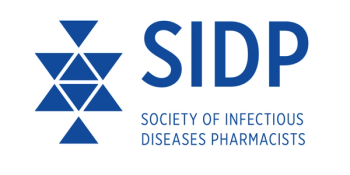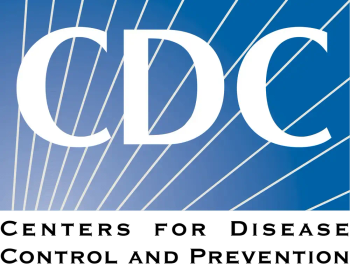
Meta-analysis revealing higher 90-day mortality with intermittent than continuous infusion of ß-lactams for sepsis prompts call for latter to be standard of care.

Meta-analysis revealing higher 90-day mortality with intermittent than continuous infusion of ß-lactams for sepsis prompts call for latter to be standard of care.

Enjoy a healthy and memorable 4th of July by prioritizing food safety while savoring delicious meals with family and friends.

In the latest Bench to Bedside column, clinicians provide information and resources on recommended topics learners should explore.

Novavax, Inc has unveiled promising results regarding its JN1 COVID-19 vaccine's efficacy against emerging virus variants, including KP2 and KP3.

Biosurveillance has evolved beyond biodefense, emphasizing a comprehensive network to detect and counter biological threats.

A new study shows a greater likelihood of contracting this foodborne illness associated with a local area's socioeconomic vulnerability index (SVI) rank level, and reinforces the importance of addressing disparities in food safety.

Focused on microbial dynamics and inflammatory markers during remission, the study reveals persistent dysbiosis in the small intestine despite clinical improvements.

DDW 2024 highlighted advances in managing recurrent C difficile infections, emphasis on the effectiveness of live biotherapeutic products and the impact of antibiotic stewardship, and more ongoing efforts in combating C difficile.

Biopharmaceutical company, Dynavax, is comparing its investigational immunization against a FDA-approved vaccine.

The FDA recalls ice cream, orzo, and mixed nuts. Also this week, interviews with Jared Baeten, MD, PhD, on Lenacapavir's 100% efficacy against HIV, and Jason Roberts, PhD, on the promise of continuous β-Lactam against sepsis, and more from Contagion.

During today's CDC Advisory Committee on Immunization Practices (ACIP) meeting, committee members voted to recommend the FDA-authorized 2024-2025 COVID-19 vaccines for individuals aged 6 months and older. Additionally, they reaffirmed the existing influenza vaccination guidelines for the 2024-2025 season.

The test was validated as part of the NIH’s RADx tech program through its Independent Test Assessment Program, in collaboration with the FDA.

A Florida hospital takes a novel approach for the healthcare-associated infection and reduced inappropriate testing by setting up guidelines.

The federal agency says everyone 75 years of age and older should receive the RSV vaccine.

Jared Baeten, MD, PhD emphasizes the importance of the innovative PURPOSE 1 study in the fight against HIV, coinciding with National HIV Testing Day, today serves as a reminder of the ongoing efforts to expand testing access and develop new tools to combat HIV globally.

A retracted paper that erroneously claimed the measles, mumps and rubella (MMR) vaccine caused autism has repercussions still being felt today around topics such as vaccination, misinformation and disinformation, and measles incidence rates.

A case study of an 80-year-old patient, illustrating successful management of dual H pylori and C diff infections with quadruple therapy, with key insights from Yazan Abboud, MD and Sima Vossough-Teehan, MD.

The WHO reports the variant, clade I MPXV, has been circulating in a region within the Democratic Republic of Congo since last year.

Updates from June 24, 2024, on FDA-issued food recalls highlight potential issues such as Listeria contamination, mold growth, and undeclared allergens.

Findings from a pair of phase 2a trials showed combination imdusiran and IFN or VTP-300 with standard-of-care NA therapy led to meaningful and sustained reductions in HBsAg levels.

The study analyzed over 15 years shows declining rates of chronic and acute Hepatitis B in China, which is expected to make a significant contribution to the global elimination of hepatitis B by 2030.

Those individuals who received older versions of vaccines did not see significantly reduced risks of severe COVID-19 outcomes.

Researchers assess the efficacy of fecal microbiota transplantation (FMT) for first or second episodes of Cdifficile infection (CDI), demonstrating high initial cure rates and sustained in managing the condition.

In a small study, recurrent Clostridioides difficile infection (CDI) therapy, Rebyota, was durable in a majority of patients who were exposed to non-CDI antibiotics.

Jason Roberts, PhD, notes that the BLING study has been a great success for infectious diseases and critical care as a research program, providing strong evidence supporting a meaningful intervention for patients, specifically in clinical cure rates and the occurrence of infections with multiresistant organisms.

Research presented at ASHP 2024 found that concerns around the safety of COVID-19 vaccines and the credibility of information from public health authorities were the biggest drivers of vaccine hesitancy during the COVID-19 pandemic.

Jason Roberts, PhD, discusses insights from the BLING III trial, outlining its study design and primary outcomes. His analysis centers on the clinical benefits of continuous infusions while addressing the complexities of antibiotic administration in critical care. This is part 1 of a 2-part series.

Social determinants of health may determine hepatitis C management in the outpatient setting.

Michigan is taking decisive action to support dairy farms affected by the recent outbreak of highly pathogenic avian influenza (HPAI).

FDA approves pneumococcal vaccine V116, Salmonella outbreak linked to a household pet, Japan is currently facing an unprecedented surge in cases of streptococcal toxic shock syndrome, and more this week from Contagion.